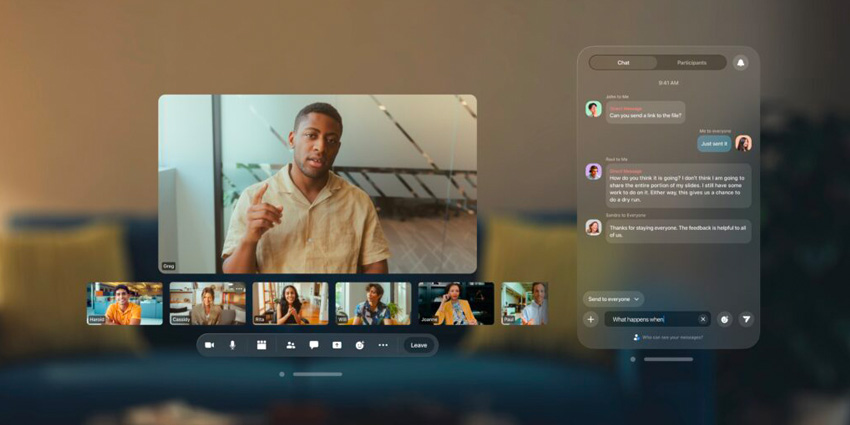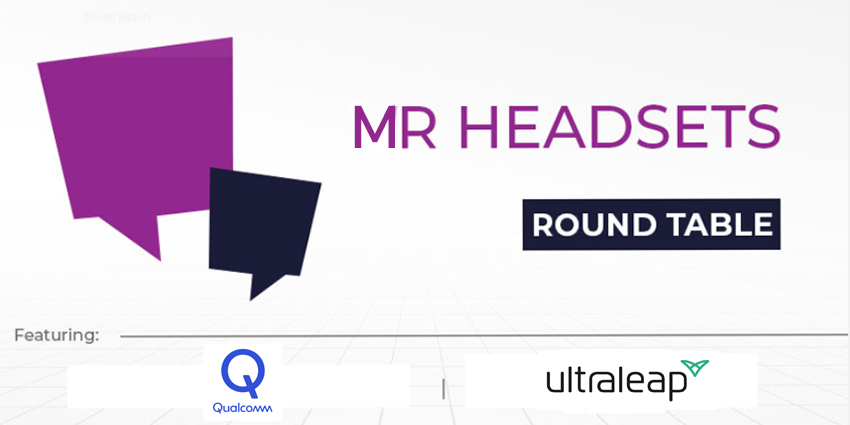This week was a big one for some of the major players in the enterprise XR space.
With Q2 earnings coming in, many are observing that some market leaders are losing a lot of capital. However, the figures could be somewhat deceiving, as XR firms, big and small, require a massive amount of R&D funding to succeed.
On the other hand, enterprise XR use cases remain a core focus and driving point for immersive tech firms this week.
Groups like Microsoft are leveraging a collapsing military contact to keep its IVAS device lineup alive for further funding, and HTC VIVE took note to explain the importance of enterprise end-users in discussion with the World Economic Forum.
Meta’s Q2 Earnings, Startup Program, and Quest Security Upgrades
It was a busy month for Meta. The Reality Labs division’s revenue plummeted by $3.7 billion during Q2, as revealed in its financial reports on Wednesday.
The firm expects losses to “increase meaningfully year-over-year due to ongoing product development efforts in augmented reality/virtual reality and investments to further scale our ecosystem.”
Mark Zuckerberg, CEO and Founder of Meta said his firm had a “good quarter” despite the result. The CEO also noted that Meta is seeing “strong engagement” across its apps, explaining, “we have the most exciting roadmap I’ve seen in a while with Llama 2, Threads, Reels, new AI products in the pipeline, and the launch of Quest 3 this fall.”
Even though Meta faced a tough Q2, Zuckerberg is notably optimistic. The CEO added:
We expect higher infrastructure-related costs next year. Given our increased capital investments in recent years, we expect depreciation expenses in 2024 to increase by a larger amount than in 2023. We also expect to incur higher operating costs from running a larger infrastructure footprint.
More on Meta this Week
Moreover, Meta partnered with India’s Ministry of Electronics and Information Technology MeitY and HCLTech as part of an XR Startup Program for boosting startup capacities, providing rising talent with resources to fulfil and showcase use cases in the region.
The government-backed programme aims to seek out and incubate talent. Moreover, the programme will help supply XR resources for the region’s end-users in healthcare, education, agricultural technologies, and others linked to India’s economic, environmental, and societal growth.
The final announcement of the week from Meta. The Menlo Park-based firm dropped a major update for its Quest portfolio.
Platform Integrity Attestation application programme interface (API) is a new Quest service that protects device users from piracy and fraud.
The update avoids fraud by verifying whether people have tampered with their devices and fights privacy by verifying the authenticity of devices via the app’s server.
Platform Integrity Attestation API also supports other security concerns such as device authentication, hardware-based app bans, financial and enterprise app data protection, and external data misuse.
Samsung Revenue Drops
This week, Samsung also revealed its Q2 earnings. In its report, the firm noted that its Q2 net profits fell by 84.5 percent from last year to $1.4 billion, its total revenue fell by 22 percent to $47 billion, and Samsung’s operating income dropped to $527 million, a decrease of 95 percent.
The decline is due to various factors, one of which is a decrease in shipments of Samsung smartphones.
On the other hand, some of Samsung’s Q2 losses stem from its dedication of capital and resources towards securing XR’s “readiness.”
The firm is confident that its current growth plans and dedication to developing XR products will support the firm in the future, boosting Samsung’s financials.
Moreover, according to the earnings call, Samsung is “productivity investing” into creating an “innovative” immersive product with a user experience that separates the conceptual device from others on the market.
Samsung also noted that the upcoming XR device would be unique to the Galaxy ecosystem of mobile computing devices.
During its earning call, Daniel Araujo, VP of Mobile eXperience at Samsung, explained that the XR market is a “large new growth opportunity” for Samsung.
Araujo also added:
We set up a dedicated organization for immersive product planning and R&D, and we’re also collaborating closely with affiliate companies and other partners. In particular, this includes a mid-to-long-term collaboration with leading partners like Google and Qualcomm.
Samsung also acquired US microdisplay company Imagine last May, and the firm is still recouping the cost as it undergoes merger approvals from various country authorities.
Samsung should start to see a return from its Imagine acquisition in October this year once acquisition deals close.
According to Samsung, the acquisition’s “key purpose” is to enhance “technology preparedness” for its dive into the XR marketplace.
Suh also described microdisplay parts as the number 1 “key components in an XR device,” meaning that Samsung sees immense value in the market and longstanding firm Imagine should help the firm leverage this investment opportunity.
Microsoft Begin IVAS 1.2 Testing
Microsoft may be fighting for Hololens.
The firm is entering the most recent testing stage in its longstanding US Army contract. The deal sees Microsoft deploy 20 IVAS HoloLens headsets to soldiers starting July 31st.
The current testing stage is operating under a reduced contract. US Congress blocked original deals, which would have seen Microsoft distribute a massive 121,000 IVAS devices leading into 2025.
However, the US government significantly reduced the number of requested headsets due to soldier complaints. Now, Microsoft must showcase core improvements of the device to continue the deal, securing more capital for Microsoft’s immersive divisions.
According to reports, US Army soldiers are complaining that the IVAS device is not easy to use, including complaints about the device’s visibility at night, weight, and form factor.
The US Army is working closely with Microsoft as part of the IVAS testing programme to leverage feedback from trainees to improve the headset. Microsoft listened to feedback from soldiers and Congress, leading to the optimization of design features to increase usability.
The US Senate Appropriations Defense Subcommittee cut around $350 million from the Army’s $400 million procurement request in August 2022, leading to the reduced version 1.2 testing period.
The future is unclear, and a lot is riding on this contract for Microsoft. Microsoft is including industrial Metaverse considerations as part of its AI Cloud Partner Program. If the July 31st testing period succeeds, Microsoft will gain more capital and resources to improve the military-facing device – which could translate into funding for a broader HoloLens iteration, perhaps ready for Microsoft’s 2024 Metaverse roadmap.
HTC VIVE representative, Pearly Chen, says The Metaverse will Transform Healthcare, Enterprise, and Education
Finally, HTC VIVE’s Head of Business Development & Content Partnerships at VIVEPORT, Pearly Chen, spoke on the presence of Metaverse services for enterprise end-users.
Chen explained that doctors use XR in healthcare institutions to help with high-stakes decision-making. This is one of my favourite examples of real-life value-add today. It’s not just about gaming entertainment; it’s something that can be done exponentially better using this immersive interface in artificial intelligence tools,” Chen noted.
Chen also explained that today, many healthcare professionals are still using 2D resources to assist with decision-making which means doctors still need to “construct three-dimensionally in their heads before conducting a critical surgery.”
Chen also noted how XR can improve learning outcomes in healthcare and beyond. The HTC VIVE rep also said, “simulation can add a layer of understanding and retention” across training, including procedure, hard-skill, and soft-skill-based enterprise learning.
Enterprise-grade immersive modules can also assist senior teams during learning operations, including leadership, hard conversations, empathy, and DEI training.
Although, immersive learning outcomes are not exclusive to enterprise clients. Education end-users can leverage XR today to engage with students to improve learning and retention expectations.






